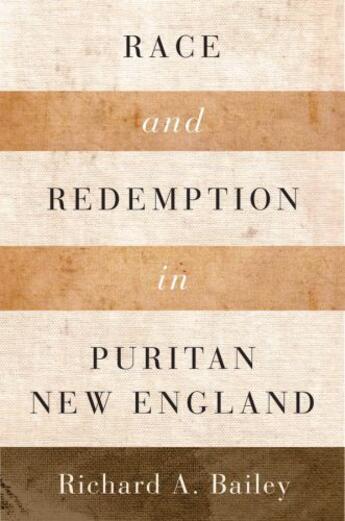Des idées de lecture pour ce début d'année !
Passionné(e) de lecture ? Inscrivez-vous
gratuitement ou connectez-vous pour rejoindre la
communauté et bénéficier de toutes les fonctionnalités du site !

As colonists made their way to New England in the early seventeenth century, they hoped their efforts would stand as a "citty upon a hill." Living the godly life preached by Winthrop would have proved difficult even had these puritans inhabited the colonies alone, but this was not the case: this new landscape included colonists from Europe, indigenous Americans, and enslaved Africans. In Race and Redemption in Puritan New England, Richard A. Bailey investigates the ways that colonial New Englanders used, constructed, and re-constructed their puritanism to make sense of their new realities. As they did so, they created more than a tenuous existence together. They also constructed race out of the spiritual freedom of puritanism.
Bailey contends that, as New Englanders of the seventeenth and eighteenth centuries offered spiritual redemption to their neighbors, they found it necessary to define how they differed from one another, especially from the Native Americans and Africans living in the northern British mainland colonies. Race and Redemption in Puritan New England explores how these proponents of the New England variant of puritanism made race out of their offers of spiritual freedom, setting the stage for similar processes when physical and social freedom became more accessible for New Englanders of color in the generations following the American Revolution.
Il n'y a pas encore de discussion sur ce livre
Soyez le premier à en lancer une !

Des idées de lecture pour ce début d'année !

Si certaines sont impressionnantes et effrayantes, d'autres sont drôles et rassurantes !

A gagner : la BD jeunesse adaptée du classique de Mary Shelley !

Caraïbes, 1492. "Ce sont ceux qui ont posé le pied sur ces terres qui ont amené la barbarie, la torture, la cruauté, la destruction des lieux, la mort..."